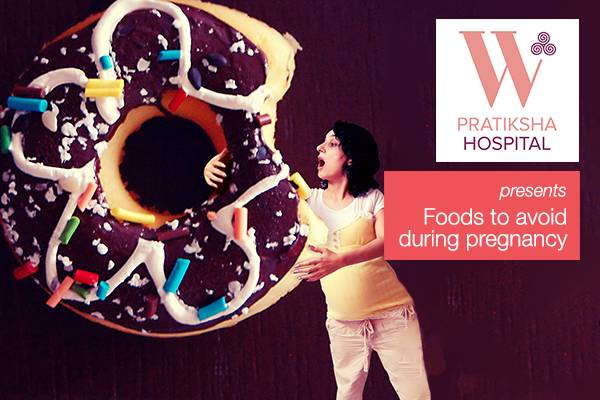
If You Are Pregnant And Eating These Food Items, STOP NOW!
1 Nov 2015 | 4 min Read
Dr. Ragini Agrawal
Author | 4 Articles
Eating well-balanced meals and high-quality diet is important at all times, but it is even more essential when you are pregnant. Pregnancy is a period where you and your developing baby require essential nutrients, vitamins and minerals. Most foods are safe; however, there are some foods that you should avoid during pregnancy.
Generally, for pregnant women a well-balanced diet should include 80 – 100 grams of protein, carbohydrates and fat, combined with plenty of fibres and water (calories from all of the food groups). Pregnancy-related dietary changes should begin prior to conception, with appropriate modifications across pregnancy and post-pregnancy, during lactation.
1. Unwashed Vegetables:
Vegetables must be eaten but it is essential to make sure that they are washed to avoid potential exposure to fertilizers and pollutants. Raw vegetable sprouts – Pregnant women should avoid raw sprouts in food and eat thoroughly cooked sprouts.
2. Raw milk and Dairy products:
Unpasteurized milk and dairy products may contain listeria, a bacteria linked to miscarriage and blood poisoning. It is imperative to consume pasteurized milk.
3. Raw Meat, Seafood and Eggs
a. Uncooked seafood and rare or under cooked meat should be avoided because of the risk of contamination with coliform bacteria, toxoplasmosis, and salmonella.
b. Cook all meat and poultry thoroughly so there’s no trace of pink or blood. Be particularly careful with sausages and minced meat.
c. Raw eggs or any foods that contain raw eggs should be avoided because of the potential exposure to salmonella.
4. Seafood:
Certain types of seafood should be avoided.
a. During pregnancy consumption of seafood, containing high doses of mercury, has been linked to developmental delays and brain damage. High mercury concentration fish: tilefish, shark, swordfish, and king mackerel must be avoided.
b. Although international agencies recommend pregnant mothers to consume up to 12 ounces a week of fish with low mercury concentration; they should still only be eaten in moderation. For example, up to 6 ounces a week of white (albacore) tuna should be consumed.
c. Women and their family members should take care to avoid fishes exposed to industrial pollutants.
5. Liquids to avoid or intake in limited quantities:
a. Caffeine– intake, as a general rule, should be limited to 200 mg per day (from all sources) during pregnancy. Some studies show excess consumption of caffeine may result in miscarriage, premature birth, low birth weight, and withdrawal symptoms in infants. To be safe, avoid caffeine.
b. Alcohol must be avoided completely during pregnancy. Alcohol exposure during pregnancy, is known to causes development disorders and impact intellectual abilities and physical growth.
c. Unpasteurized juices purchased from roadside stands and at farms should be avoided; it may have live bacteria and toxins.
d. Drink plenty of water and ensure that it is filtered or boiled.
e. Popular herbal tea sold at stores is safe, but should be avoided in large quantities. Herbal supplements should completely be avoided.
It is recommended that you avoid food containing preservatives, excess sugar, artificial colouring and added multivitamins. Also, avoid junk food and products. Furthermore, plastic containing BPA (an industrial chemical found in the lining of many canned foods) is an endocrine disruptor that may disturb normal foetal development – it is advisable to avoid foods stored in such containers.
A common misconception is that during your pregnancy, you are eating for two. Eating too many calories is bad for both you and your baby. You should certainly be increasing the amount of certain nutrients. However excessive consumption, increases your risk of gestational diabetes, backaches, high blood pressure, and needing a caesarean birth because your baby is very large. Conversely, gaining too little weight during pregnancy is a cause for concern. It can lead to low birth weight, premature delivery, and could cause developmental delays, learning disabilities and chronic health problems in your baby. W Hospital strongly recommends consultation with a nutritionist to get further information on a healthy diet for you and your baby during pregnancy.
This article is sponsored by: W Pratiksha Hospital
To consult Dr Ragini Agarwal in person, click here.
A


Suggestions offered by doctors on BabyChakra are of advisory nature i.e., for educational and informational purposes only. Content posted on, created for, or compiled by BabyChakra is not intended or designed to replace your doctor's independent judgment about any symptom, condition, or the appropriateness or risks of a procedure or treatment for a given person.
